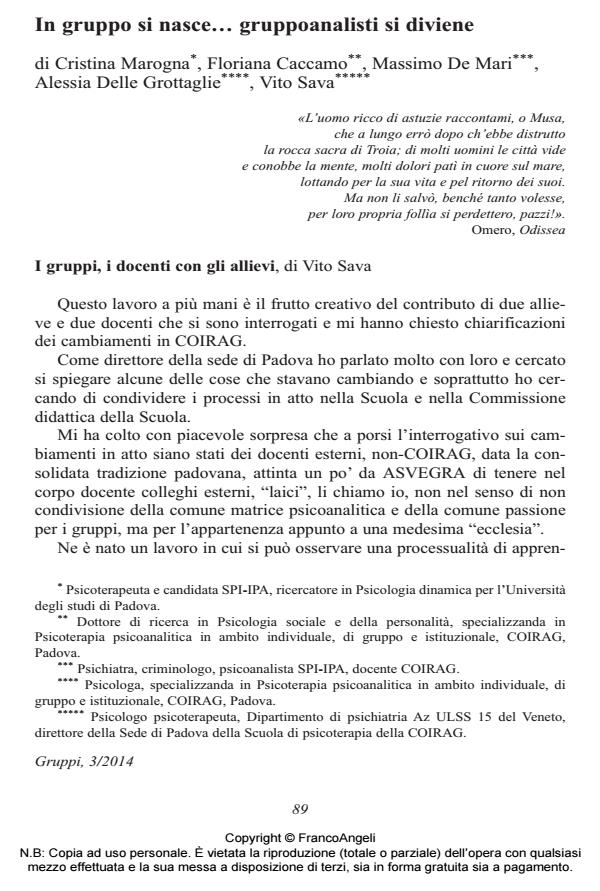One is born in a group... (but) one becomes a group analyst
Journal title GRUPPI
Author/s Cristina Marogna, Floriana Caccamo, Massimo De Mari, Grottaglie Alessia Delle, Vito Sava
Publishing Year 2015 Issue 2014/3
Language Italian Pages 12 P. 89-100 File size 79 KB
DOI 10.3280/GRU2014-003008
DOI is like a bar code for intellectual property: to have more infomation
click here
Below, you can see the article first page
If you want to buy this article in PDF format, you can do it, following the instructions to buy download credits

FrancoAngeli is member of Publishers International Linking Association, Inc (PILA), a not-for-profit association which run the CrossRef service enabling links to and from online scholarly content.
The article aims to provide the reader with an overview of the training experience as it is lived within the COIRAG School of Specialization in Psychotherapy in Padua. This was followed by the points of view of students, supervisors and teachers with the aim of describing their summit observation of psychotherapy training. It is known that the theoretical teaching taking place within psychotherapy training can be described as working on the borderline between knowledge and procedure, or between what should be done and what then actually happens in clinical experience. In a context of social and political changes, a Specialization school study plan should take into account the changes taking place, and it is precisely within this process of change that the sense of being together as a group arises, teachers and students in COIRAG, at the COIRAG headquarters in Padua, in the school’s new education system.
Keywords: Group, training, supervision, changes, psychotherapy, theory-procedure.
Cristina Marogna, Floriana Caccamo, Massimo De Mari, Grottaglie Alessia Delle, Vito Sava, In gruppo si nasce.. gruppoanalisti si diviene in "GRUPPI" 3/2014, pp 89-100, DOI: 10.3280/GRU2014-003008